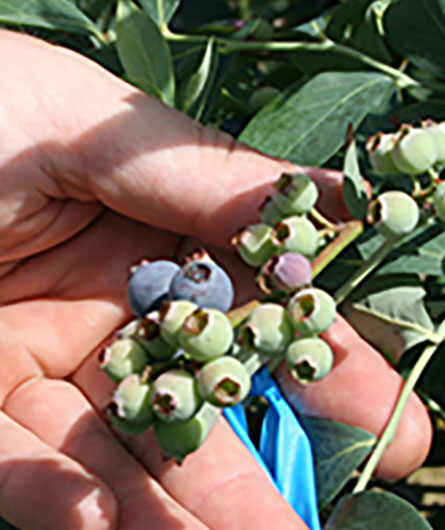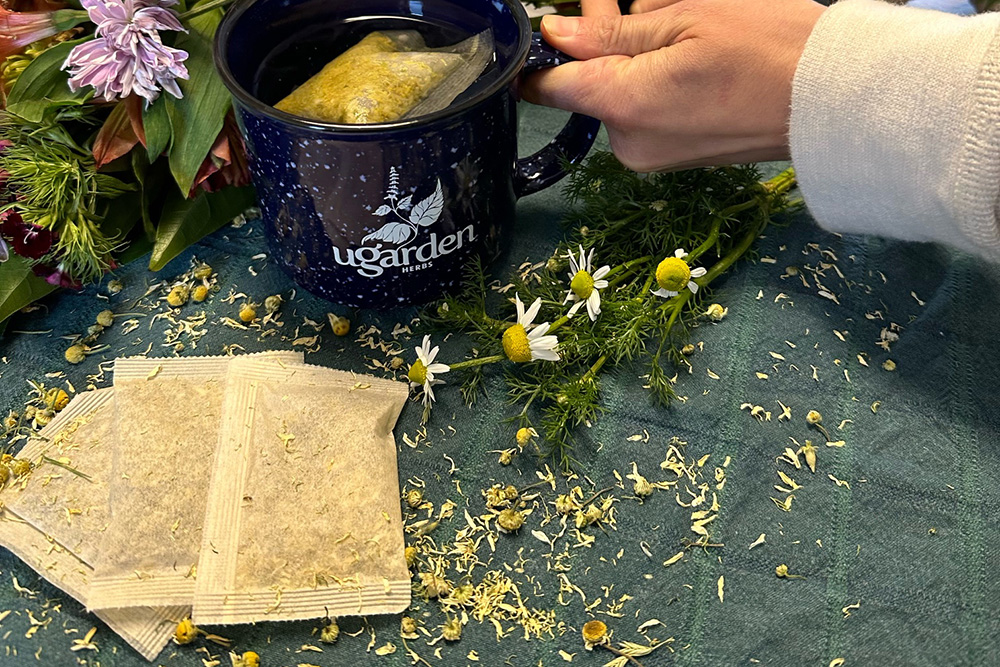After ending 2015 with some record-breaking warm and wet weather, Georgia’s fruit and tree nut farmers are concerned that the lack of chill hours and soggy soil could damage their crops.
Most of December averaged about 10 degrees above normal temperatures across the state, and many parts of Georgia saw 8 to 10 inches more rainfall than normal, according to the National Weather Service.
While a mild winter can slow or derail the development of blueberries and peaches and soggy soils can damage the trees and bushes, farmers are hopeful that a return to relatively normal winter temperatures will help them finish out the growing season successfully.
Blueberries
With December weather in the 70s — and even into the 80s in some parts of south Georgia — some blueberry growers are already seeing buds, flowers and scattered “blue fruit” on their bushes, said Renee Allen, University of Georgia Cooperative Extension’s commercial blueberry agent.
Early blooming and fruiting is not uncommon in south Georgia, but to see buds and fruit in December is extreme. Farmers worry that if enough buds emerge early and are damaged by frost in January, February and March, there could be a severe decrease in harvest.
“We’re optimistic that things will be OK, but we do have some concerns about the crop since we are seeing buds, and even fruit, on some bushes,” Allen said. “There’s nothing you can do about it, so we’ve just got to wait and see. Hopefully with the return of the cooler weather, the development of some of these plants will be slowed.”
In addition to the extreme warm snap, there may be a problem with the general mildness of Georgia’s winter so far.
All blueberry plants need a set number of chill hours — hours spent below 45 degrees Fahrenheit — between October and February for the plants to successfully produce fruit in the summer. The exact number of hours needed depends on the variety, but many south Georgia berries haven’t had the chill they need this winter.
As of Jan. 5, farmers in south Georgia’s top blueberry-producing counties have seen a record low number of chill hours for the 2016 growing season: around one-half to one-third of the chill hours they usually see.
A lack of chill hours can cause erratic fruiting and blooming, which can make it hard for farmers to organize their harvest and also decrease yields.
Blueberries are Georgia’s most valuable fruit crop, with an annual production valued at about $335 million.
Peaches
While south Georgia farmers are worried about their blueberry crops, the warm snap and heavy rains have middle Georgia farmers worried about their peach crops.
Peaches also need chill hours, and most varieties in middle Georgia need between 700 and 1,000 hours. Most large peach-producing counties have seen less than half of what they would usually have by this point, said Jeff Cook, UGA Extension agent for Taylor and Peach counties.
Peaches in his area have not started to bud or bloom, but the lack of chill hours could translate into a late or diminished crop, he said.
“If you look at the fact that there are only 1,000 or so more hours between now and (mid-February), we are most likely going to be short on chill hours,” Cook said. “How short and how that translates into delayed bloom or reduced bloom is yet to be determined.”
“We are concerned, but I don’t like to worry about stuff that I cannot control, so I will just stay concerned along with all of the growers and hope for colder weather throughout the remainder of this winter,” he said.
Another problem is flooded peach orchards. Water-logged soil can lay the groundwork for disease problems in the spring, he said.
Pecans
While the warm, wet weather did not impact pecan production this year, it did seem to hinder harvests, which usually take place in November and December.
“Harvest conditions have been horrible. Pretty much that whole second half of December was (made up of) terrible conditions,” said Lenny Wells, UGA Cooperative Extension pecan specialist. “The warmer and wetter it is, the faster that crop is going to deteriorate.”
With temperatures in the 70s and 80s in south Georgia and weeks of rain, pecans were rotting before they could be harvested.
Despite the less-than-ideal harvesting conditions, Wells was optimistic about Georgia’s pecan crop.
“I talked to some producers over the holidays about the crop that they were still bringing in. There was some rot in the (pecans), which there has been throughout the harvest season with the conditions we’ve had. The late-season stuff may not have been great, but it wasn’t as bad as they thought it was going to be,” Wells said.
“I would have really thought that the weather we had over the holidays was going to deteriorate the rest of what’s out there, but it wasn’t quite that bad and there’s still some (pecans) being picked,” he said.
For more information about how Georgia’s climate impacts agriculture, visit blog.extension.uga.edu/climate/.







